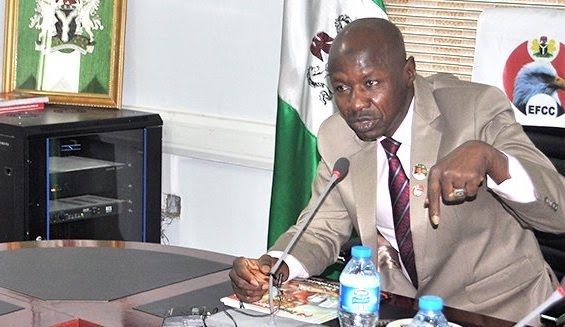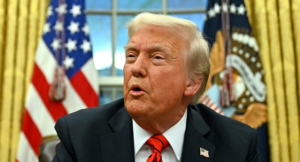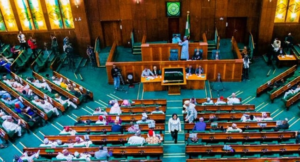
Acting Chairman, Economic and Financial Crimes Commission, EFCC, Ibrahim Magu, has called on members of the academia, to ensure professionalism and academic integrity in order to engender a corrupt-free society.
“This is a clarion call to all stakeholders in the academia to professionally perform their respective functions with utmost honesty, trust, fairness, respect and responsibility,” he said.
Magu, who was represented by Dr. Aminu Gusau, Director, Organizational Support of the EFCC, further called for a united front in the fight against corruption, describing corruption as “an inhibitor of socio-economic development, which has threatened our corporate existence as a Nation.”
Speaking on the topic, “The Role of Higher Education in Profession Development”, at the Open Day Event of the Nile University of Nigeria, Abuja, December 7, 2019, he noted that, “the university being the highest institution of learning, characterized by diverse set of citizens, occupies a larger space in the education sector and plays a major role in societal transformation”.
He said: “Corruption is a disease that has been attacking the different sectors of the society, with the educational sector having its own share of the menace.”
He further expressed concerns that corruption has “weakened our higher institutions of learning leading to low efficiency, wastage, misappropriation of resources and low quality service delivery.”
Quoting the late President Nelson Mandela of South Africa, he described education as the most powerful and effective weapon to change the world.
He said: “Education is the bedrock of all societies.
“It is the systematic process of transforming a society to a disciplined, self-reliant and productive state.
“The wide disparity amongst nations is largely a function of the quality of education being offered by educational institutions.”
Making reference to the National Policy on Education, he noted that, “quality education ensures professional development and hence, leads to positive societal development in every aspect of human endeavour”.
He said: “The University Management and Stakeholders in both the public and private sector, saddled with the responsibility of ensuring educational activities run effectively and efficiently within their domains, have a sacred duty to protect our educational sector from the menace of societal ills.”
Highlighting the negative effect of corruption on higher education and the society, he stressed that professional development remained a panacea to societal problems.
“While the EFCC will support all genuine efforts towards ensuring prevention of economic and financial crimes, we shall not relent in prosecuting public officers that loot the public treasury,” he added.
The Secretary to the Government of the Federation, SGF, Boss Mustapha, who was represented by the Legal Adviser in the Office of the SGF, Emmanuel Akissa, urged members of the academia to ensure excellence in service delivery.
He further called on the management of the Nile University to be adaptive in a changing world, and to be dynamic in the use of modern technology.








